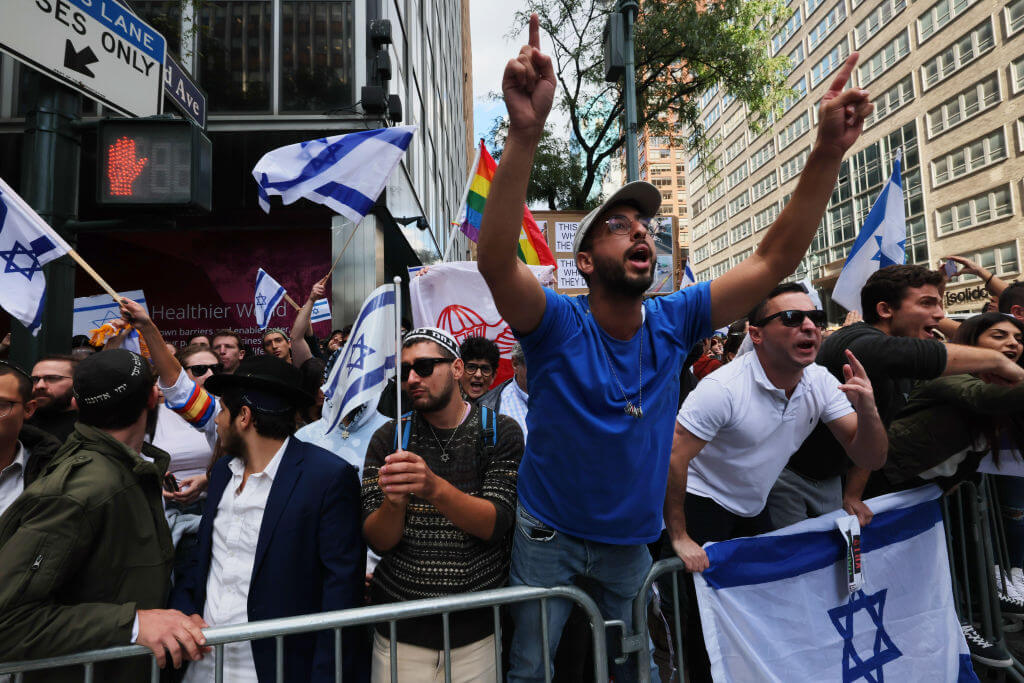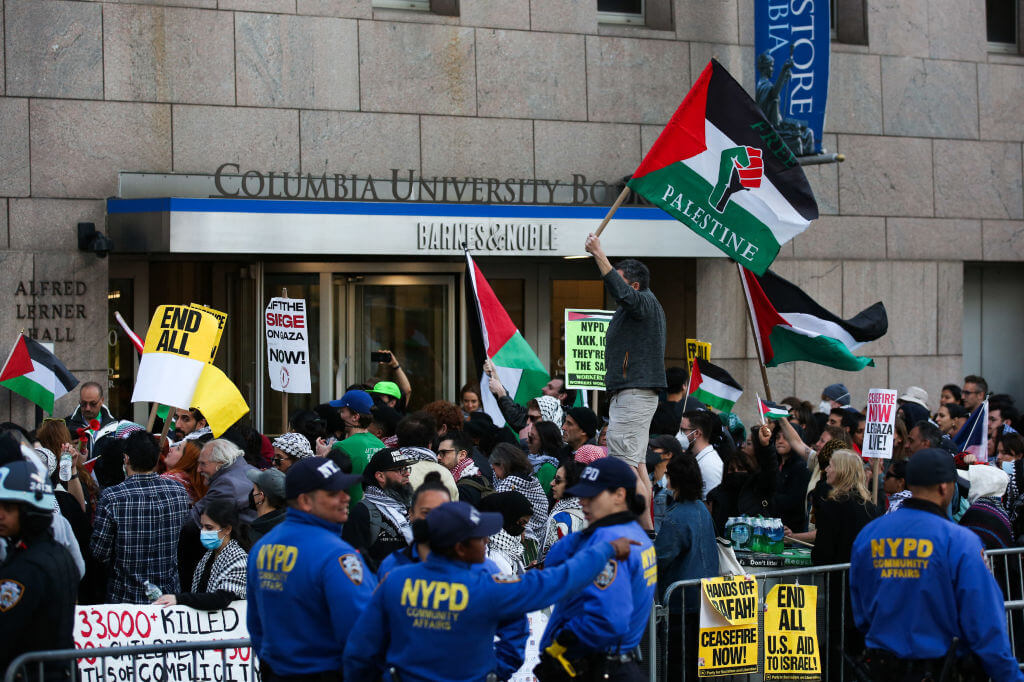Protests at Columbia University persisted on the eve of Passover, as alarming incidents of antisemitism during pro-Palestine demonstrations came to light, prompting calls from local leaders for decisive action.
Mayor Eric Adams expressed his outrage, condemning the reported incidents, including chants of “We don’t want no Zionists here,” a demonstrator shouting “We are Hamas,” and a sign pointing to Jewish students with the phrase “Al-Qassam’s Next Targets.” He emphasized the timing, as these events unfolded just before Passover, heightening concerns among the Jewish community on and off campus.
Campus life across the U.S. has seen significant disruption since the Hamas terror attack on Israel on October 7, 2023. Jewish students and faculty have faced an increase in anti-Israel and antisemitic incidents, including harassment, vandalism, and, in some cases, physical assault.

Mayor Adams directed the NYPD to investigate potential criminal acts and reiterated that officers are prepared to intervene when necessary. Following the arrests of several demonstrators on April 18, the NYPD has maintained a presence near the campus while Columbia’s security handles internal measures. Adams urged Columbia’s administration to maintain close coordination with law enforcement to ensure campus safety.
Elected officials, including U.S. Senator Kirsten Gillibrand and Governor Kathy Hochul, also condemned the incidents. Gillibrand described the threats against Jewish students as unacceptable, and Hochul stressed the importance of a harassment-free educational environment. Manhattan Borough President Mark Levine called the rhetoric at the demonstrations “vile,” urging greater protections for Jewish students.

Columbia/Barnard Hillel encouraged students feeling unsafe to seek refuge at the Kraft Center for Student Jewish Life. Executive Director Brian Cohen urged the university and city to take stronger action to safeguard the community.
The White House joined in condemning the antisemitic incidents. Deputy Press Secretary Andrew Bates reaffirmed the right to peaceful protest but denounced threats and intimidation targeting Jewish students, stating such actions are “unconscionable” and have no place on college campuses or anywhere in the United States.

Concerns extend beyond the immediate Columbia community, as advocates worry about the broader implications for Jewish life on college campuses nationwide. Jewish organizations have pointed out that such incidents may deter prospective students and faculty from engaging with universities where they feel unwelcome or unsafe. The Anti-Defamation League (ADL) reported a rise in antisemitic incidents on campuses since October 2023, correlating with heightened tensions over the Israel-Palestine conflict.
Student groups on both sides of the issue have clashed, with some accusing the administration of inadequate responses to hate speech while others claim suppression of free speech. This polarization further complicates efforts to foster a sense of safety and mutual respect. Meanwhile, university administrators face increasing pressure to address these issues transparently and effectively. Many see the current crisis as a critical moment for educational institutions to reaffirm their commitment to inclusivity and ensure that all students, regardless of identity, can learn without fear of discrimination.
Meyer Harroch, New York Jewish Travel Guide (April 23, 2023)



You must be logged in to post a comment Login